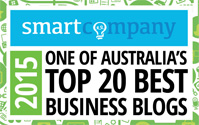Facebook Falling? Preparing Your Business for the New Social Media Frontier
Facebook Falling? Preparing Your Business for the New Social Media Frontier
People love to root for the underdog. Remember when MySpace still ruled the land, and Facebook was the small competitor gaining ground with college kids? You couldn’t get a Facebook account without a university or school email address, so people went out of their way to obtain these and keep them after graduation.
Limiting a good product’s availability is a classic method of creating hype. By the time you launch to the general public, the idea is to have generated buzz that will propel your business to mass public acceptance.
These days, Facebook is anything but the underdog. Taking your business public on the stock market is the ultimate display of “going big.” After peaking at $38.50 on its first day of trading after an IPO in May, share prices have dipped and held around the $20 mark. That financial news coincides with rapidly declining customer satisfaction levels, falling below Twitter, Pinterest and Google + in recent weeks.
Facebook is scrambling to find new revenue streams in hopes of demonstrating its value to investors. Unfortunately for them, these same profit-driven ventures may undercut the essence of what made it the world’s preeminent social media site in the first place.
If you’re a business owner (especially in Australia, where 90 percent of businesses don’t have a website, don’t be persuaded not to begin a Facebook page for your company. At the same time, whether you’ve been cultivating online followers for years or are just jumping into social media marketing, it’s wise to be aware of the changes Facebook is making that may ultimately precede its decline.
Paid Posts Beginning last spring, Facebook launched a beta program in New Zealand that allows users to pay to promote a post on their personal page. This means that their post will be ‘stickier,’ remaining on friends’ news feeds longer and higher up in the hierarchy. The same concept is already available to Facebook business page users worldwide. When an individual user’s experience begins to feel like a marketing platform rather than a place to socialize and share without profit motive, people may move on to alternatives.

Poor Advertising Results Just before their IPO, Facebook lost a major client in General Motors when the car maker pulled $10 million in ads from their site. Facebook’s click-through rates for sidebar ads are dismal, and the number of people who actually make a purchase after clicking is often as low as 1 percent. Start-up companies tend to focus on quality before monetization, often looking for a sell-out before ever entertaining the idea of advertisers. While build-to-sell is not a sustainable business model, it does mean that Facebook will always have savvy young competitors nipping at their heels.
Revealing Browsing Habits In July, Facebook changed an integral privacy policy, making it possible to see who has viewed each post on group pages. One of Facebook’s attractions is undoubtedly the ability to screen people anonymously, from a potential new employee, a blind date, or an ex. If Facebook makes browsing history visible within personal pages, it’s safe to say that the site could lose some appeal to many users. It may have already.
Looking Ahead at AlternativesDon’t get me wrong — Facebook still rules the roost, and a business owner would be foolish not to court customers through the site with daily updates, information, and giveaways. Still, don’t put all your eggs in one basket. If you’re just diving into social media, widen your approach just as you would a stock portfolio.
- Google +
Although Google’s alternative to Facebook is far from an underdog, it’s also safe to say that it’s probably here to stay. Don’t forget that Google knows more about you through your search history than any other online entity.
- Meeteor
LinkedIn has established itself as the go-to business networking site, but start-up Meeteor may quickly overtake it thanks to its integration within Facebook’s network.
3.Pinterest and Fancy
Between November of last year and now, Pinterest has grown faster than any other social network to date. TheFancy.com has gained steam in recent months, taking Pinterest’s social element to a more commercial level.
4.Path
Path has yet to be monetized or commercialized, and that’s the very reason it’s stealing users away from Facebook.
Whatever direction you go with your social media marketing, it’s important to get started. And if you focus completely on Facebook, at least say abreast of the changing policies that will affect how your business should approach its marketing plan.
Christopher Wallace, Vice President of Sales and Marketing for Amsterdam Printing, has more than 20 years experience in sales and marketing. At Amsterdam Printing, a leading provider of custom pens and other promotional items such as custom USB drives, Christopher is focused on providing quality marketing materials to small, mid-size and large businesses. He regularly contributes to Promo & Marketing Wall blog.


